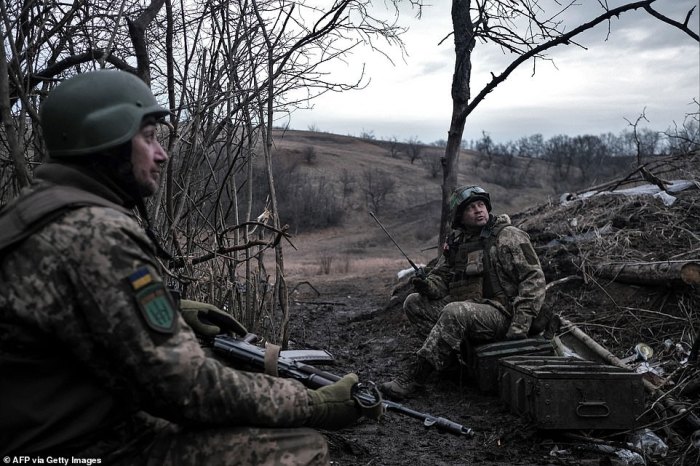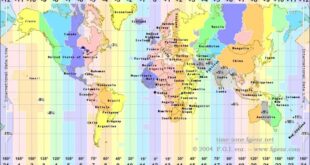49% of Russians support withdrawal of troops from Ukraine, poll says, a significant shift in public opinion that could have profound implications for the ongoing war. This finding, revealed in a recent survey, suggests a growing weariness with the conflict among the Russian population.
While support for the war remains substantial, the increasing number of Russians who favor a withdrawal raises questions about the future of the conflict and its impact on Russian politics.
The poll results reflect a complex interplay of factors, including the economic strain of the war, the mounting casualties, and a growing awareness of the conflict’s true costs. Media narratives, both domestic and international, have also played a role in shaping public opinion, while societal anxieties about the future of Russia and its place in the world have likely contributed to the shift.
Public Opinion in Russia
The recent poll revealing that 49% of Russians support withdrawing troops from Ukraine carries significant weight, considering the deeply entrenched narrative surrounding the “special military operation” in Russia. This figure signifies a potential shift in public sentiment, prompting questions about the underlying factors driving this change and its potential impact on the future of the conflict.
Historical Overview of Public Opinion in Russia Regarding Military Interventions
Understanding the current public opinion requires examining historical trends. Russia has a long history of military interventions, each shaping public opinion in unique ways.
- The Soviet-Afghan War (1979-1989) saw initial support for the intervention, but public opinion turned against the war as it dragged on, fueled by heavy casualties and economic strain. This experience instilled a deep-seated aversion to prolonged military conflicts.
- The First Chechen War (1994-1996) was marked by public skepticism and dissent, particularly after the brutality of the conflict became evident. This war demonstrated the limitations of military power and the potential for public backlash against military interventions.
- The Second Chechen War (1999-2009) witnessed a surge in support for the intervention, driven by the fear of terrorism and the perception of a necessary response to the Beslan school hostage crisis. This period highlights the influence of external threats and the potential for public support to shift in favor of military action.
These historical experiences have shaped a complex public opinion landscape in Russia, characterized by a general skepticism towards military interventions and a sensitivity to their potential consequences.
Factors Influencing Public Opinion
The recent poll results suggest a confluence of factors influencing public opinion regarding the war in Ukraine.
- Media Narratives:While Russian state-controlled media initially presented a unified narrative justifying the “special military operation,” growing reports of casualties, economic hardship, and lack of progress in Ukraine have contributed to a more nuanced public discourse. The increasing presence of alternative narratives, even if limited, can erode public support for the war.
- Economic Conditions:The war has significantly impacted the Russian economy, leading to inflation, sanctions, and a decline in living standards. The economic strain, particularly impacting vulnerable populations, can fuel public dissatisfaction and increase support for ending the conflict.
- Societal Anxieties:The ongoing war has raised anxieties about the future, including potential escalation, military mobilization, and the economic and social consequences of prolonged conflict. These anxieties can contribute to a growing desire for de-escalation and peace.
Political Implications
This poll result, revealing that almost half of Russians support the withdrawal of troops from Ukraine, carries significant political implications. It sheds light on the evolving public sentiment within Russia and its potential impact on the government’s decision-making process.
Impact on Decision-Making
The poll results suggest a growing discontent among the Russian population regarding the ongoing war in Ukraine. This sentiment could exert pressure on the Russian government to re-evaluate its war strategy and potentially consider a withdrawal of troops. However, it’s important to consider that the government’s decision-making will likely be influenced by a multitude of factors beyond public opinion, including geopolitical considerations, economic interests, and the potential for internal instability.
Influence on Political Landscape
The poll findings could potentially influence the political landscape within Russia, leading to shifts in power dynamics. This sentiment could fuel dissent within the ruling party, leading to internal pressure for a change in course. It could also empower opposition groups, giving them a platform to voice their dissent and mobilize public support for a peaceful resolution to the conflict.
Potential for Internal Dissent
The growing public dissatisfaction with the war could potentially lead to increased internal dissent within Russia. This dissent could manifest in various forms, including protests, demonstrations, and civil disobedience. The government’s response to this dissent will be crucial in determining the trajectory of the conflict.
If the government attempts to suppress dissent forcefully, it could further alienate the population and escalate tensions. Conversely, a more conciliatory approach could potentially appease public concerns and open the door for a negotiated solution.
International Reactions
The poll results indicating that 49% of Russians support withdrawing troops from Ukraine are likely to be met with a complex and multifaceted response from the international community. While some nations may see this as a positive sign, others may be cautious and skeptical of the sincerity of the support.
Reactions of Different Countries and Blocs
The reactions to the poll results are likely to vary significantly across different countries and blocs of nations. Here’s a breakdown:
- Western Nations:Western nations, particularly those heavily involved in supporting Ukraine, may express cautious optimism. They are likely to emphasize the importance of Russia actually following through on any potential withdrawal, while also maintaining pressure for a complete and unconditional withdrawal of troops.
Examples include the United States, the United Kingdom, and European Union members.
- Ukraine:The Ukrainian government is likely to be cautious, as it has consistently called for the complete withdrawal of Russian forces and the restoration of its territorial integrity. Any potential withdrawal would need to be verified and monitored closely to ensure it is genuine and not a tactical maneuver.
- Neutral Countries:Neutral countries, such as Switzerland and Austria, are likely to observe the situation closely and advocate for a peaceful resolution of the conflict. They may call for dialogue and diplomacy while remaining neutral on the issue of troop withdrawal.
- Russia’s Allies:Russia’s allies, such as Belarus and China, may be more supportive of the poll results, interpreting them as a sign of Russian public opinion shifting towards a negotiated settlement. However, they are likely to emphasize the need for Ukraine to make concessions as well.
Impact on Diplomatic Efforts
The poll results could potentially impact diplomatic efforts to resolve the conflict. Some countries may see this as a positive development that could encourage Russia to be more flexible in negotiations. However, it is important to note that the poll does not necessarily reflect the position of the Russian government, which has repeatedly insisted on its right to conduct a “special military operation” in Ukraine.
Future Outlook
The poll results indicating 49% of Russians supporting the withdrawal of troops from Ukraine have significant implications for the future of the conflict. This level of public sentiment could potentially influence the course of events in various ways. Analyzing the potential scenarios and timeline of events helps understand the potential impact of this poll result on the conflict.
Potential Timeline of Events
The poll results, if they reflect a growing trend, could potentially lead to a series of events:
- Increased Public Pressure:The poll result could lead to increased public pressure on the Russian government to reconsider its military strategy in Ukraine. Protests and demonstrations demanding withdrawal could become more frequent and vocal.
- Political Pressure within Russia:The poll results could embolden opposition figures and political parties within Russia to criticize the war more openly. This could lead to increased pressure on the government to seek a negotiated solution.
- Negotiations and Diplomatic Efforts:The poll results could encourage both Russia and Ukraine to engage in more serious negotiations. The international community, seeing a potential for a shift in Russian public opinion, could increase its diplomatic efforts to facilitate peace talks.
- Potential for a Change in Military Strategy:The poll results could lead to a change in the Russian military strategy. If the government senses a decline in public support for the war, it might be more willing to consider concessions or a phased withdrawal of troops.
Do not overlook the opportunity to discover more about the subject of Ensworth football vs. Lipscomb Academy: our best pictures.
Scenario Analysis, 49% of Russians support withdrawal of troops from Ukraine, poll says
The poll results present various possible outcomes, depending on how the situation evolves:
- Scenario 1: Continued Escalation:The Russian government could ignore the poll results and continue its military offensive in Ukraine. This could lead to further international sanctions and isolation of Russia, potentially exacerbating the economic and social crisis within the country.
- Scenario 2: Gradual De-escalation:The Russian government, under pressure from public opinion and international actors, could gradually de-escalate the conflict. This could involve a ceasefire, withdrawal of troops from certain areas, or a negotiated settlement with Ukraine.
- Scenario 3: Complete Withdrawal:The poll results could trigger a significant shift in public opinion, leading to widespread protests and demands for complete withdrawal. The government, under immense pressure, could be forced to negotiate a complete withdrawal of troops from Ukraine.
Impact on Key Stakeholders
The poll results have the potential to significantly impact key stakeholders:
- Russia:The poll results could lead to increased domestic unrest, economic hardship, and political instability. The government might face a difficult choice between maintaining its military campaign and appeasing public opinion.
- Ukraine:The poll results could offer a glimmer of hope for Ukraine, suggesting a potential shift in Russia’s stance. However, the outcome remains uncertain, and Ukraine will need to navigate a complex geopolitical landscape.
- International Community:The poll results could provide an opportunity for the international community to intensify diplomatic efforts and encourage a peaceful resolution. However, the international community will need to carefully navigate the situation to avoid further escalation.
Conclusive Thoughts

The poll results serve as a stark reminder of the human cost of war and the growing discontent among the Russian people. The international community is watching closely, hoping that this shift in public opinion could pave the way for a peaceful resolution to the conflict.
However, the path forward remains uncertain, and the potential for internal dissent and further escalation of the war remains a serious concern.
FAQ Explained: 49% Of Russians Support Withdrawal Of Troops From Ukraine, Poll Says
What are the potential implications of this poll result on the Russian government’s decision-making regarding the war in Ukraine?
The poll results could put pressure on the Russian government to reconsider its war strategy or even consider a withdrawal of troops. However, the government may also choose to ignore public opinion and continue the war, relying on its control over the media and the security apparatus to maintain its grip on power.
How might this poll result influence the political landscape within Russia?
The poll results could lead to increased internal dissent and a rise of anti-war sentiment within Russia. This could create challenges for the government and potentially lead to political instability.
What are the potential economic implications of the poll result?
The poll results could indicate a growing public desire for an end to the war, which could lead to calls for economic reforms and a shift in priorities away from military spending.
How might the international community react to the poll results?
The international community may see the poll results as a sign of growing public opposition to the war in Russia and could use this as leverage to push for a peaceful resolution to the conflict. However, some countries may remain skeptical and continue to view Russia as a threat.
 CentralPoint Latest News
CentralPoint Latest News




